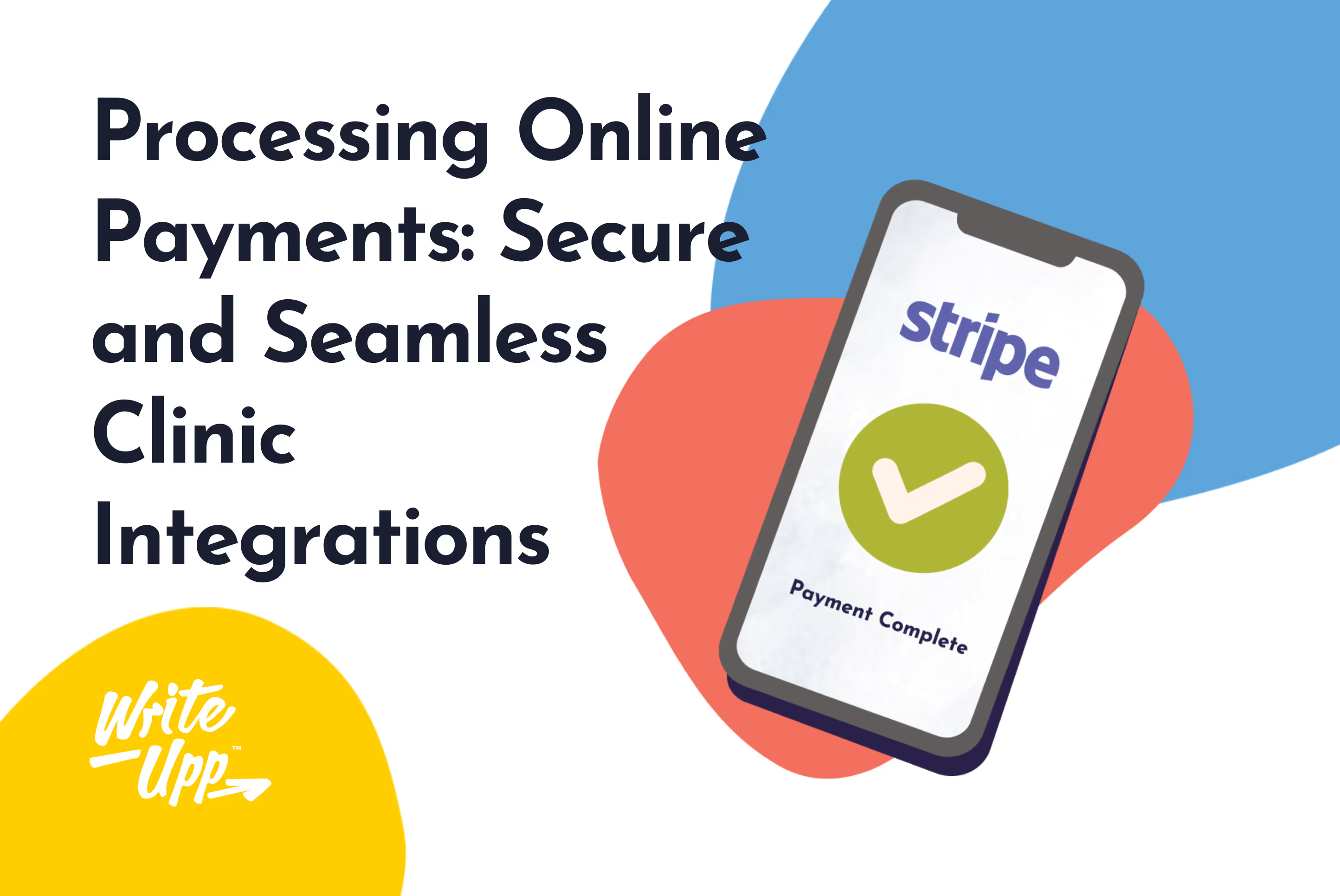20% of new businesses fail in their first year, and 60% won’t make it past three years of trading…
OK, this might not be the best way to start an article on starting a healthcare practice… But it is possible to build a business that will provide you with income, fun, independence, and untold job satisfaction if you keep those figures in mind from the outset.
Starting a private practice and igniting your next exciting career stage can be highly rewarding. Even so, opening a private practice comes with its own set of challenges.
To access the complete guide on how to start a private practice in the UK, you can download the eBook for free:

What is a Private Healthcare Practice?
Private medical practices provide direct and personal care to patients independent of the NHS. The patient will pay for their own care, usually ad hoc or through a private medical insurance plan.
In the UK, approximately 11% of the population has some form of private medical insurance, but not all policies are comprehensive.
It is estimated that most private care patients are covered by private medical insurance policies, while only 20% pay directly out of their own pockets. Public taxes fund the NHS, and is mostly free at the point of access.
Only a few doctors work in private practices full-time, with many balancing private and NHS commitments.
The Benefits of Starting a Private Healthcare Practice
Here are some of the critical advantages of starting your own private practice:
Autonomy and Control
One of the most significant benefits of starting a private healthcare practice is the level of autonomy and control it provides. As a practice owner, you can set your own schedule, determine the services you want to offer, and make decisions based on your expertise and vision. This level of control allows for a more personalised approach to patient care and enables you to create a practice that aligns with your values and goals.
Increased Earning Potential
Private practitioners often have the potential to earn higher incomes than those working in the NHS. You can optimise your practice's revenue by setting your own fee schedule and managing your invoices and billing. As your practice grows and you build a loyal patient base, you can further increase your earning potential.
Flexibility and Work-Life Balance
Running your own private practice allows for greater flexibility and work-life balance. You can create a schedule that suits your needs, giving you more time for family, personal pursuits, and self-care. While starting a private practice requires dedication and hard work, the ability to have control over your schedule can lead to a better quality of life.
Personalised Patient Care
Private practices often foster stronger patient relationships due to their personalised and individualised care. With fewer patients to see and more time allocated per appointment, you can truly listen to patients, understand their concerns, and develop comprehensive treatment plans. This personalised approach enhances patient satisfaction and leads to better health outcomes.
Potential for Growth and Expansion
Starting a private healthcare practice opens up avenues for growth and expansion. As your practice gains a reputation for excellence and attracts more patients, consider expanding your services or hiring additional healthcare professionals to meet the demand. This scalability allows you to continuously adapt and grow your practice to serve your community's needs better.
eBook: How to Start a Private Healthcare Practice
Eligibility to Start a Private Healthcare Practice
Any fully registered medical practitioner can open a private practice. It is essential to consider these factors when starting a private practice:
- To become a licenced medical practitioner, you must complete the necessary qualifications and training for your field of practice.
- Register with the General Medical Council (GMC): you don’t need to inform your local council about taking private work, but you must follow GMC guidance.
- Apply for a licence to operate an independent healthcare service. You need to obtain admitting rights and practising privileges to work in a private hospital or practice under a larger private medical organisation. These may be approved by the hospital’s Medical Advisory Committee (MAC). Consultants may even have to admit rights at more than one hospital.
- Register with the Information Commissioner’s Office.
- Register with HMRC within three months.
- Decide whether to become a sole trader, start a business partnership, or even become a hospital-owned medical practice.
- Acquire indemnity cover: All private practitioners require indemnity cover under one of the medical defence organisations, such as the Medical Defence Union, Medical and Dental Defence Union of Scotland, and Medical Protection Society.
- Check out the CCSD and HRG medical billing coding systems. These organisations provide a system of industry-standard procedures and billing codes.
- Decide if you require additional hires, such as secretaries, lawyers, accountants, and personal assistants.
Download your free eBook: How to Start a Private Healthcare Practice:

Creating a Private Practice Business Plan
In many ways, starting a private practice is much like any other business. There are certain elements to consider to be successful and attract clients. Start on the right foot by creating a good business plan - and don’t forget to get networking.
A well-crafted business plan is a roadmap for your practice, outlining your goals, strategies, and financial projections. It provides a clear direction for your practice and acts as a tool to attract potential investors or partners.
Here are some key elements to consider when defining your business plan for a private healthcare practice.
Identify Your Target Market
Before diving into the intricacies of your business plan, it's essential to identify your target market. Determine the demographics, needs, and preferences of your potential patients. Conduct market research to understand the demand for your services and competition in the area. By understanding your target market, you can tailor your services and marketing efforts to meet their specific needs, increasing the likelihood of success.
Determine Your Services and Specialties
Outline the specific services and specialities your practice will offer. Consider your expertise and the demand for specific services in your target market. Assess the competition to identify any gaps in services that you can fill. Clearly define the scope of your practice and the unique value proposition you bring to the table. This will help differentiate you from competitors and attract potential patients seeking specialised care.
Financial Projections and Funding
A solid financial projection is a crucial business plan component. Estimate your start-up costs, including office space, equipment, licensing fees, and personnel expenses. Consider potential revenue streams, such as private insurance companies or self-pay patients, and project your expected cash flow. If you require funding, outline your plan to secure financing through traditional loans, investors, or grants. A realistic financial plan will give you a clear understanding of the resources needed to start and sustain your practice.
Legal Structure and Compliance
Determine the legal structure for your practice. Will you operate as a sole proprietorship, partnership, limited liability company (LLC), or professional corporation (PC)? Each legal structure has its own implications regarding liability, taxes, and ownership. Consult with a legal professional to ensure compliance with local regulations and to choose the most advantageous structure for your practice. Taking care of legal and regulatory aspects from the beginning will help you avoid any potential legal hurdles.
Marketing and Branding
Develop a comprehensive marketing and branding strategy to promote your practice. Identify your unique selling points and create a compelling brand identity that resonates with your target market. Utilise digital advertising, social media, and search engine optimisation (SEO) tactics to reach your audience effectively. Implement strategies to encourage positive online reviews and manage your online reputation. Consider engaging in public relations efforts to increase awareness of your practice and build trust within the community.
Operational Considerations
Your business plan should also address the day-to-day operations of your practice. Determine the necessary office space, equipment, and supplies for quality care. Explore practice management tools and electronic health record (EHR) systems to streamline administrative tasks and enhance patient care. Consider outsourcing payroll services or hiring specialised professionals to manage billing and insurance claims. Assess the staffing needs of your practice and create a plan for recruitment, training, and conducting performance evaluations.
Need a Helping Hand Starting Up Your Practice?
Private practice software like WriteUpp is easy to use and affordable, and it lets you take client bookings online, reduce admin time, and improve the overall client experience from the moment you set up your practice.
It helps you to put everything involved with running a private practice into one secure and automated place.
Basically, it’s there to save therapists time and money!
You’ll spend less time looking for information, preparing notes, and writing client emails and text messages, giving you more time to grow your practice.
With just a few clicks, you can access a ton of features, including;
- Taking bookings from your clients online, 24/7
- Cashless, online payments
- Online prescriptions
- Accessing reporting to analyse your business income
- Eliminating paper
- Improving your client’s experience
- Simplifying your compliance with key regulations like GDPR
- Reducing the threat of virus transmission
You can grab us for a live chat if you have any questions about what an integrated practice management solution can do for you and your practice.
The button is just there in the bottom right corner of your screen.



Join over 50,000 clinicians that we've helped using WriteUpp
Start my free trial






